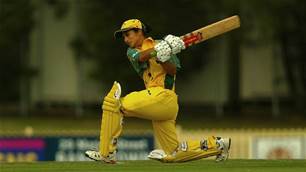The ditching of the iniquitous “Big Three” model is an indication that the ICC might have the interests of the game of cricket at heart, rather than those of its current superpowers.
Exactly what actuated this change of heart is a mystery, but it’s gratifying that Cricket Australia has voted for the changes, despite opposition from India, which is reluctant to relinquish its share of the existing revenue pie in favour of more equitable sharing among full member nations. It’s time the ICC looked at the growth of the game worldwide, rather than scrambling for easy dollars and pandering to narrow, venal interests.
The aim of the new world Test championship should be to ensure the Test game, which atrophied under the old regime, be allowed to shed the blight of meaninglessness that has plagued it for decades. The overhaul must be comprehensive, and include the way the game is played on the field and competed amongst nations (including a points system in which all matches matter – no dead rubbers), the first-class competitions that support and feed Test-level cricket, and the inclusion of all member nations in a manner that ensures the health of the game and the nations participating.
Test cricket must differentiate itself from the abbreviated versions of the game, and it’s up to the ICC and local boards to ensure that the incentive to play the long version is substantial, the system robust and the skills strong enough to sustain Test-match play and keep it interesting for spectators until the game is played out.
The restoration of the dignity of the longer game needs to be reflected in scheduling and selection. The existence of T20 competitions around the world should no longer be deleterious to the Test game. Though they will always intersect, the area of overlap should be shrunk considerably.
Furthermore, any new initiative should be accompanied by the same sort of savvy marketing that has characterised the short form of the game. Test cricket has a long and prestigious history, and its stars and their accomplishments are worthy of the sort of publicity and “hype” that often-transient T20 players receive. First-class cricket competitions around the world also deserve to be invested with greater significance as players vie for national selection, and former, current and future Test stars compete in powerful and attractively-packaged domestic competitions. No more first-class matches in empty arenas.
As for the 50-over game, it too warrants the enhanced context these new initiatives aspire to give it. I’m not sure how the Chappells or the Hadlees feel about having their name attached to a series like that just completed in New Zealand, but the one-day game deserves to be freed from the yoke of numbing purposelessness that has afflicted it for decades. The dull tom-tom beat of dreary limited-overs series needs to be replaced with the excited speculation of fans as they follow their team’s progress to a World Cup.
If these changes are only driven by the desire for endless profit, at some stage the integrity shortfall will catch up with them. Most of the ICC board are there because, supposedly, they are people with business nous. Sound-minded businesses devote part of today’s time and energy to tomorrow. These changes might be flawed, but the fact that the ICC is even considering the vitality of the game, rather than the short-term condition of their coffers, is a great start.
The mission of the game’s governing body should always have been to ensure that a significant portion of its income was devoted to keeping the game green and growing, not ripe and rotting.
Related Articles

Aussie legend Sthalekar joins cricket immortals

Football, cricket, rugby combine over fears for women's sport













